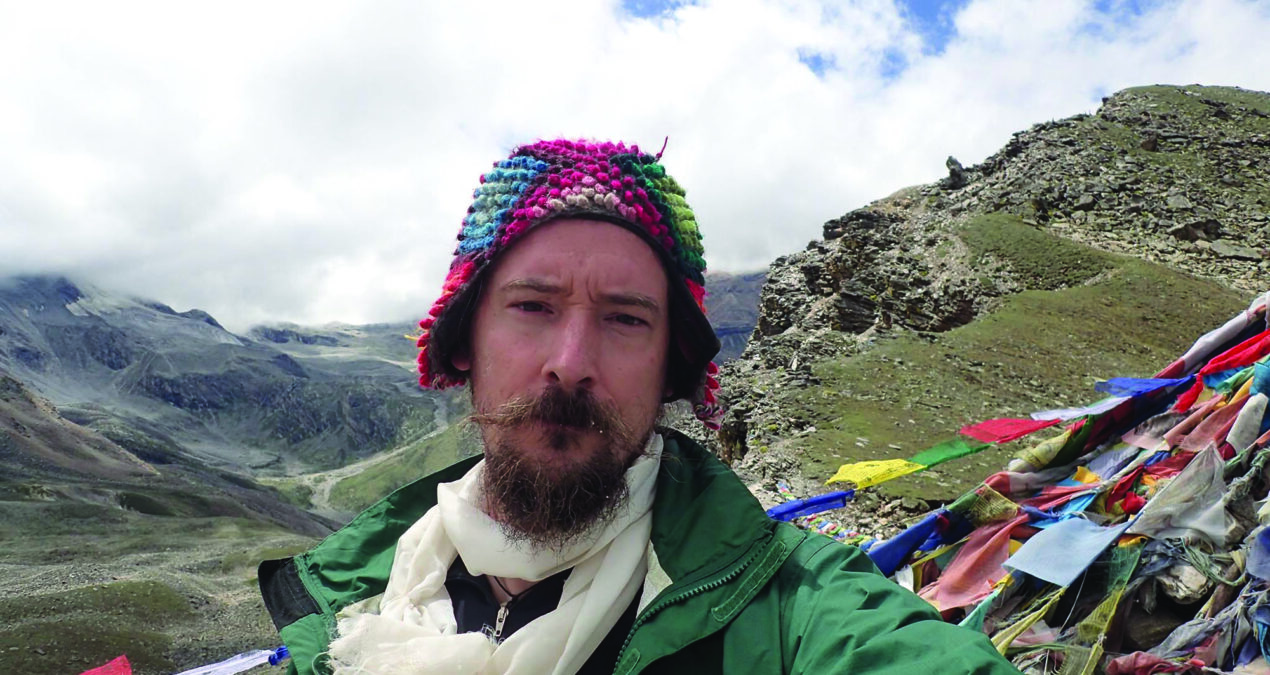Donald Keough, News Editor–
When you walk into one of Dr. Chris Crews’ classes, you’ll notice that it’s different from what you might expect. For example, during one of his Friday international studies classes, a reggae-pop fusion song, called “Searching” by Matisyahu was playing while Crews chatted among students, dressed in a smoking hat from Nepal, a southern chinese robe, and leather shoes from India.
But besides his own personal touches, his classes’ environments are often distinct in the way that they focus on student participation and discussion as opposed to lectures.
“I tried to do a class that’s both student centered and interactive,” Crews said. “My philosophy is we want critical thinkers who can reach their own truths and be able to defend and articulate why they think their arguments make sense.”
Activities in Crews’ classes include project-based presentations, researching present-day issues and exploring ways to address current issues, which are all ways that Crews has worked throughout his career.
Crews, 47, is a visiting professor in the International Studies department, and has worked at Denison for the past four years. He was born in a tiny town near Canton, OH, and after graduating high school, Crews attended Ohio University, going on to eventually get his Masters there in Political Science. After getting his masters, he attended the New School for Social Research and earned his PhD in politics. Throughout his work towards his PhD, Crews traveled to many countries, mainly from 2013 to 2018, and in these countries he led research projects in places like China, India, Nepal and Tibet.
In his travels, much of Crew’s work revolved around Anthropocene politics, social movements, environmental justice and indigenous rights issues. He spent six years working with the India China Institute (ICI), fostering relations between India, China and the US while working on research projects with students in these countries. One such project was a three year research project looking at sacred mountains in South Asia and Somalia.
“One of the highlights was in western Nepal at a place called Mount Kailash,” Crews said. “It’s a sacred mountain that people from most of all the major religions in South Asia hold in reverence. We were at around 5000 meters up with all different religious traditions, all of whom were there for the same purpose… the belief in something greater than ourselves.”
At Denison, Crews has continued to be involved in social movements and politics, such as his work on two new book proposals, one which he said is more of a academic book that looks at retaliation to social reform, and the other is a fiction book which focuses on the work of a journalist in 2050 who is seeking to understand the past social movements in the early 2000s. He hopes that his second book can help give the perspective of what cultural politics might look like to someone in the future.
Crews has also described himself as a very social person, due to his mother being a school teacher, his involvement in soccer and Boy Scouts growing up and his participation in social movements.
“I think you kind of have to be social to be a teacher,” Crews said. “Your job is to get up in front of a group of people every day. Through years and years of social movement work, I got used to large crowds and groups of people. Reporting on news stories, shooting documentary films… you’re just in big groups a lot so I don’t think about it anymore.”
The combination of teaching, research and writing is something that Crews said he loves at Denison.
His main hope for his students, however, is that they are more informed after taking his class. The music, his outfits and the activities are all part of cultivating a class spirit and encouraging students to be more aware of the world around them.
“Hopefully you come out of [my] class as a better student and more educated,” Crews said. “When you’re more informed and more interested in how the world works and what’s going on, the more you’re a part of the idea of global citizenship, and this is what cultivates a better sense of community.”
Editors’ Note: The professor spotlight is a recurring feature. Email [email protected] if you would like to suggest a professor to be featured.

